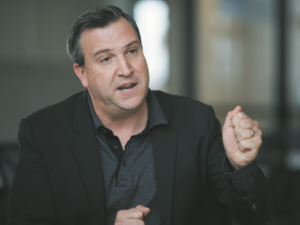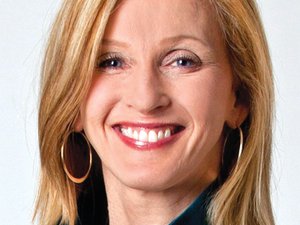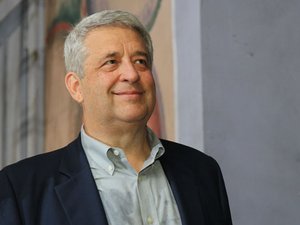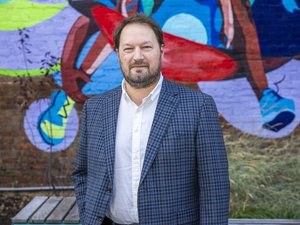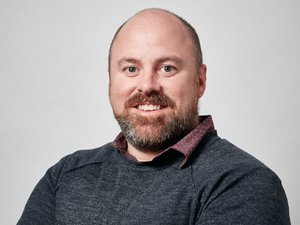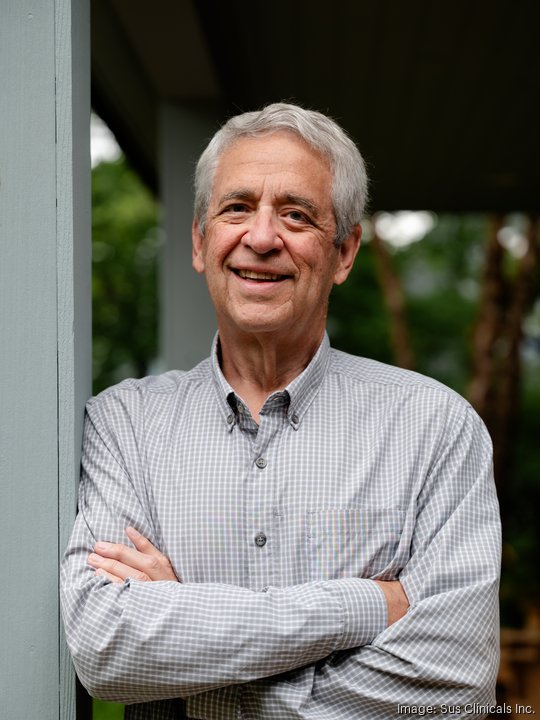
The founding CEO of Cincinnati startup catalyst Cintrifuse has launched a cancer pre-clinical research startup in Cincinnati that has just completed an initial closing of nearly $4 million as part of an initial investment round.
Jeff Weedman, who was the first CEO when Cintrifuse was launched in 2012, co-founded Sus Clinicals Inc. in Cincinnati in 2020. The company just finished raising $3.7 million at the first closing of a planned $5 million seed fundraising round, Weedman told me. He expects Blue Ash-based Sus Clinicals to complete the fundraising round in the next several months.
Weedman teamed up with Dr. Lawrence Schook to form Sus Clinicals. Schook had worked with researchers at the University of Illinois to develop technology to create human tumors in pigs for clinical research purposes. Schook, who served on the board at Albion College in Michigan with fellow alum Weedman, teamed with him to turn the technology into a company.
“We’re about significantly improving the path for treatment for people who have cancer,” Weedman said. “We believe we have a better predictive model for how humans will react to drugs, devices, etc.”
Within two years, Sus Clinicals had Food and Drug Administration clearance for its capabilities. Now it’s looking to expand the company.
“My research and development pipeline is robust and dwarfs what I thought we’d have when we started,” Weedman said. “So we’re leaning into that. And we’re using some of the funding for business development. We’ve done no marketing, and we need to fix that. It’s time now for us to be proactive.”
The company uses pre-clinical testing of tumors in pigs to help developers of drugs and medical devices in their process of testing and getting approval for their products. Sus Clinicals is able to test the device or drug on tumors in pigs to help those companies determine how effective their products will be in humans. In some cases, the companies do their own testing using Sus Clinicals’ capabilities.
Pigs and humans share about 98% of the same DNA characteristics, Weedman said.
It’s looking to expand research and development to add the types of tumors, types of diseases it can study as well as increasing the organs it studies where tumors are located.
Sus Clinicals has its main office in Blue Ash. It also operates two labs in Chicago and one in Urbana, Ill., near the University of Illinois. The company has 15 employees. It also works with about eight advisers and uses contractors.
The company already has clients and is generating revenue, Weedman said. He declined to reveal numbers. But the fact it’s generating revenue already is rare. He said some biotech companies don’t have revenue for the first eight years or even longer. It’s getting repeat business, including one big client that has used the technology for four studies.
Clients have largely been medical device developers to this point.
“We’re trying to show steady progress and stickiness with clients,” Weedman said.
He declined to name clients. But the company is working with large, well-known cancer research centers such as Memorial Sloan Kettering Cancer Center in New York, City of Hope Cancer Center, Houston Methodist, University of Wisconsin, University of Illinois and Penn.
Sus Clinicals takes steps to ensure safety and humane treatment of pigs, Weedman said. It’s important for drugs to be tested on large animals to prove how effective they are, he said. The firm makes sure it’s in strict compliance with standards for use of animals in biomedical research. The industry spends $7 billion a year globally on large animal medical testing, he said.
“We don’t like sacrificing anything, but I have family and friends who have had cancer, and this is the route to getting cures,” he said.
Weedman had a long career at downtown-based consumer products company Procter & Gamble Co. (NYSE: PG), working there from 1977 to 2014. His last role there was vice president of global business development. The last two years he spent much of his time leading Cintrifuse.
After “retiring,” he worked as an adviser to startups and as an investor.
“But this is the first one to really lure me off the bench,” he said.
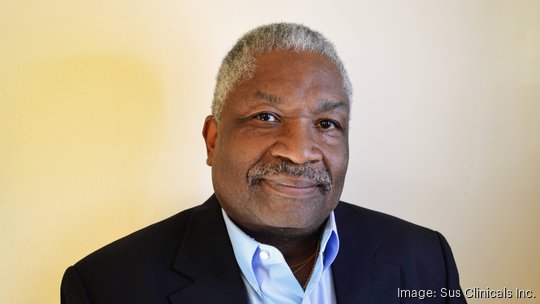
Two other retired P&G executives with startup experience are involved in the company, too. Geoffrey Marshall is chief financial officer and Steve Baggott is chief operating officer. Both are members of Cincinnati angel capital group Queen City Angels, although they invested as individuals in Sus Clinicals.
Marshall said he sees the company as an opportunity to use his experience working with other startups and his finance and supply chain experience at P&G.
Baggott sees Sus Clinicals as making a difference in world health.
"Like nearly everyone, I’ve had family and friends die from cancer," Baggott said. "I see the opportunity here to be part of something that will help cancer researchers save lives. And unlike many startups, we already have products and services that work, we have customers and we have revenue.”

Sus Clinicals has raised money so far largely from family and friends, Weedman said. Some other Queen City Angels members invested as individuals. It’s still in discussions with other potential investors, some of which are institutions, to meet the current $5 million target.
The company expects to raise a Series A round next year.
Sus Clinicals is unique in its ability to create human tumors in pigs and has patented technology for that purposed. Competitors use pigs for research, but not in this way. In more than 90% of cases, Sus Clinicals is able to induce the tumor within two weeks.
“None that we know of are able to introduce tumors on demand,” Weedman said.
Its biggest competition is actually market awareness, he said. “We’re introducing a new platform and people haven’t heard about us."
Weedman didn’t disclose future growth targets but suffice it to say they’re ambitious.
“When some consultants showed us what the total addressable market is, I wouldn’t have believed it if I had been pitched on it,” Weedman said.
